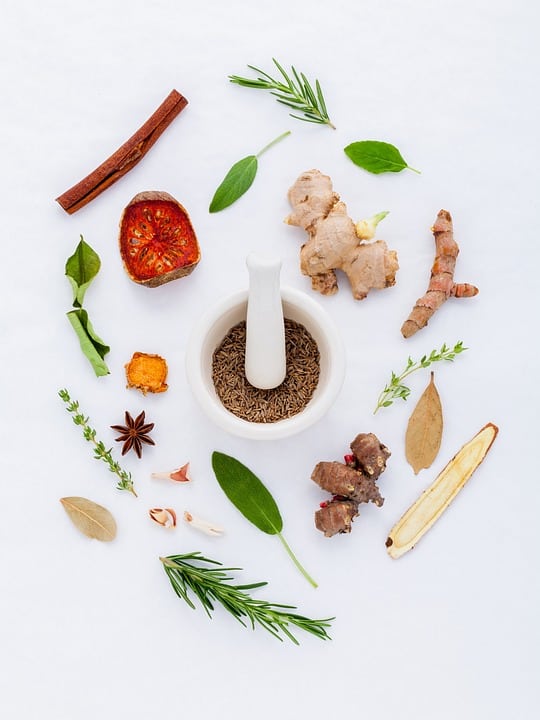Eating After A Gastric Sleeve: What You Need to Know
If you have recently undergone gastric sleeve surgery, congratulations! You have taken a significant step towards achieving a healthier lifestyle. However, the journey does not end there. You must pay close attention to your diet and eating habits to ensure that you get the most out of your surgery. In this article, we will discuss what you need to know about eating after a gastric sleeve.
The First Few Days After Surgery
In the first few days after surgery, you will be on a liquid diet. Your doctor will recommend clear liquids such as water, broth, unsweetened tea, and sugar-free gelatin. You will need to avoid carbonated drinks, as they can irritate the stomach lining and cause discomfort. You will also need to avoid high-sugar liquids, such as fruit juices and soda, as they can cause dumping syndrome.
Dumping syndrome is a condition that can occur after gastric sleeve surgery. It happens when food or drink passes too quickly through the stomach and into the small intestine. Symptoms of dumping syndrome include nausea, vomiting, diarrhea, sweating, and dizziness. To avoid dumping syndrome, you should eat slowly and avoid high-sugar foods and drinks.
Transitioning to Solid Foods
After a few days on a liquid diet, you will be able to transition to soft foods. Your doctor will recommend foods such as cottage cheese, scrambled eggs, mashed potatoes, and pureed fruits and vegetables. You should avoid foods that are high in fat, sugar, and fiber, as they can cause discomfort and slow down the healing process.
As you transition to solid foods, you should pay attention to your portion sizes. Your stomach will be smaller after surgery, and you will feel full faster. You should eat small, frequent meals throughout the day instead of three large meals.
Eating a Balanced Diet
It is essential to eat a balanced diet after gastric sleeve surgery. Your body needs a variety of nutrients to heal and function correctly. You should aim to eat lean protein, whole grains, fruits, and vegetables. You should avoid processed foods, sugary drinks, and foods high in fat.
Protein is particularly important after gastric sleeve surgery. It helps to rebuild and repair tissues and muscles, and it can also help to keep you feeling full. You should aim to get at least 60 grams of protein per day. Good sources of protein include lean meats, fish, eggs, and legumes.
Staying Hydrated
It is essential to stay hydrated after gastric sleeve surgery. You should aim to drink at least eight cups of water per day. You should also avoid drinking liquids with meals, as they can cause you to feel full more quickly and interfere with digestion.
If you have trouble drinking enough water, try carrying a water bottle with you throughout the day. You can also try adding flavor to your water with lemon or lime juice.
Long-Term Eating Habits
After gastric sleeve surgery, it is essential to make long-term changes to your eating habits. You should aim to eat a healthy, balanced diet and avoid overeating. You should also pay attention to your body’s signals and stop eating when you feel full.
It is also important to stay active after surgery. Regular exercise can help you maintain your weight loss and improve your overall health.
In conclusion, eating after a gastric sleeve requires careful attention to your diet and eating habits. You should follow your doctor’s recommendations for a liquid and soft food diet, aim for a balanced diet with lean protein, fruits, and vegetables, stay hydrated, and make long-term changes to your eating habits. With the right diet and lifestyle choices, you can achieve your weight loss goals and enjoy a healthier, happier life.
Top Questions About Eating After A Gastric Sleeve
What is a gastric sleeve surgery?
A gastric sleeve surgery, also known as sleeve gastrectomy, is a weight loss surgery that involves removing a large portion of the stomach to reduce its size and limit the amount of food that can be consumed. This procedure is usually performed on individuals who have a body mass index (BMI) of 40 or higher, or a BMI of 35 or higher with obesity-related health conditions.
Important information:
1. Gastric sleeve surgery is a weight loss surgery that involves removing a large portion of the stomach.
2. The procedure is typically performed on individuals with a BMI of 40 or higher, or a BMI of 35 or higher with obesity-related health conditions.
3. The aim of gastric sleeve surgery is to limit the amount of food that can be consumed and help individuals lose weight.
What are the dietary guidelines after a gastric sleeve surgery?
After a gastric sleeve surgery, it is important to follow a strict dietary plan to ensure proper healing and weight loss. The dietary guidelines typically involve consuming small meals that are high in protein and low in fat and sugar. The recommended diet after surgery is divided into four phases, each with its own set of guidelines.
Important information:
1. After a gastric sleeve surgery, it is important to follow a strict dietary plan to ensure proper healing and weight loss.
2. The recommended diet after surgery is divided into four phases, each with its own set of guidelines.
3. The dietary guidelines typically involve consuming small meals that are high in protein and low in fat and sugar.
When can I start eating solid food after a gastric sleeve surgery?
The timeline for transitioning from a liquid diet to solid food after a gastric sleeve surgery varies depending on the individual’s progress and the surgeon’s recommendations. In general, patients can start consuming solid food about four to six weeks after surgery. However, it is important to gradually introduce solid food and chew thoroughly to avoid discomfort and complications.
Important information:
1. The timeline for transitioning from a liquid diet to solid food after a gastric sleeve surgery varies depending on the individual’s progress and the surgeon’s recommendations.
2. Patients can start consuming solid food about four to six weeks after surgery.
3. It is important to gradually introduce solid food and chew thoroughly to avoid discomfort and complications.
What foods should I avoid after a gastric sleeve surgery?
After a gastric sleeve surgery, it is important to avoid certain foods that can cause discomfort, digestive issues, and hinder weight loss. These foods include high-calorie and high-fat foods, carbonated beverages, spicy foods, and foods that are difficult to digest. It is also important to limit the consumption of sugar and carbohydrates.
Important information:
1. After a gastric sleeve surgery, it is important to avoid certain foods that can cause discomfort, digestive issues, and hinder weight loss.
2. These foods include high-calorie and high-fat foods, carbonated beverages, spicy foods, and foods that are difficult to digest.
3. It is also important to limit the consumption of sugar and carbohydrates.
How can I ensure proper nutrition after a gastric sleeve surgery?
After a gastric sleeve surgery, it is essential to ensure proper nutrition to promote healing, prevent nutritional deficiencies, and support weight loss. This can be achieved by consuming small, frequent meals that are high in protein, low in fat and sugar, and rich in essential vitamins and minerals. Patients may also benefit from taking supplements, such as multivitamins and calcium, to meet their nutritional needs.
Important information:
1. After a gastric sleeve surgery, it is essential to ensure proper nutrition to promote healing, prevent nutritional deficiencies, and support weight loss.
2. This can be achieved by consuming small, frequent meals that are high in protein, low in fat and sugar, and rich in essential vitamins and minerals.
3. Patients may also benefit from taking supplements, such as multivitamins and calcium, to meet their nutritional needs.
Common Misunderstandings Concerning Eating After A Gastric Sleeve
Introduction
Eating after a gastric sleeve is an important aspect of the post-surgery recovery process. However, there are many misconceptions surrounding what foods can be eaten and how much can be consumed. These misconceptions can lead to a number of health issues and can even hinder the weight loss progress of the patient. In this article, we will explore some of the most common misconceptions about eating after a gastric sleeve.
Misconception 1: You Can Eat Whatever You Want
One of the most common misconceptions about eating after a gastric sleeve is that you can eat whatever you want. This is not true. Following the surgery, the stomach is much smaller and can only hold a small amount of food. Therefore, it is important to focus on nutrient-dense foods such as lean proteins, fruits, vegetables, and whole grains. Eating junk food and highly processed foods can lead to malnutrition and hinder weight loss progress.
Misconception 2: You Can Eat Large Meals
Another common misconception is that you can eat large meals after a gastric sleeve. This is also not true. The size of the stomach is greatly reduced after the surgery, and it can only hold a small amount of food. Therefore, it is important to eat small, frequent meals throughout the day. Eating large meals can cause discomfort, nausea, and vomiting.
Misconception 3: You Don’t Need to Chew Your Food
Some people believe that they do not need to chew their food thoroughly after a gastric sleeve. This is not true. Chewing your food thoroughly is important for proper digestion and absorption of nutrients. Additionally, eating too quickly or not chewing your food properly can cause discomfort, nausea, and vomiting.
Misconception 4: You Can Drink with Your Meals
Many people believe that they can drink liquids with their meals after a gastric sleeve. This is not true. Drinking liquids with meals can cause the stomach to fill up too quickly, which can lead to discomfort, nausea, and vomiting. It is recommended to wait at least 30 minutes after a meal before drinking any liquids.
Misconception 5: You Don’t Need to Take Vitamins
Finally, some people believe that they do not need to take vitamins after a gastric sleeve. This is not true. Following the surgery, the body may not be able to absorb all of the necessary nutrients from food. Therefore, it is important to take a daily multivitamin and mineral supplement to ensure that the body is receiving all of the necessary nutrients.
Conclusion
In conclusion, there are many misconceptions surrounding eating after a gastric sleeve. It is important to remember that the stomach is much smaller after the surgery and can only hold a small amount of food. Therefore, it is important to focus on nutrient-dense foods, eat small, frequent meals throughout the day, chew your food thoroughly, avoid drinking liquids with meals, and take a daily multivitamin and mineral supplement. By following these guidelines, patients can ensure a successful recovery and achieve their weight loss goals.
Eating After A Gastric Sleeve
#language #model #dont #personal #experiences #provide #general #information

